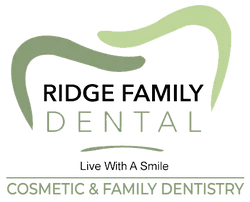Tooth extraction is a common dental procedure that many people undergo. Proper aftercare is essential to ensure a smooth and quick recovery. Ignoring aftercare instructions can lead to complications, including infections and prolonged healing times. Patients should follow specific guidelines provided by their dentist to promote healing and prevent any adverse effects. The aftercare process involves several steps, each crucial for different reasons. By understanding and adhering to these steps, patients can significantly improve their recovery experience.

Managing Pain and Discomfort
Pain and discomfort are normal after a tooth extraction, and managing them effectively is important. Over-the-counter pain relievers, such as ibuprofen or acetaminophen, can help alleviate mild to moderate pain. Dentists may prescribe stronger medications for severe discomfort. It is crucial to follow the dentist’s instructions carefully when taking these medications. Avoid taking more medication than recommended, as this can lead to unwanted side effects. Applying an ice pack to the affected area can reduce swelling and numb the pain. Use it for 15 minutes at a time, repeating every few hours as needed. This simple step can make a significant difference in your comfort level.
Controlling Bleeding
Bleeding is a common occurrence after an extraction, and controlling it is a critical part of the aftercare process. To manage bleeding, bite gently on a piece of gauze placed over the extraction site. Keep it in place for at least 30 minutes, allowing a blood clot to form. Replace the gauze as needed if bleeding persists. Avoid spitting or rinsing your mouth for the first 24 hours, as these actions can dislodge the blood clot and cause further bleeding. Elevate your head when lying down and avoid hot beverages, as these can increase bleeding. By taking these steps, you can help ensure that bleeding remains under control.
Maintaining Oral Hygiene
Maintaining oral hygiene after a tooth extraction is crucial to prevent infection. However, special care must be taken around the extraction site. Continue brushing your teeth, but do so gently and avoid the area where the tooth was removed. After the first 24 hours, rinse your mouth with warm salt water several times a day. This solution helps reduce bacteria and promotes healing by keeping the area clean. Avoid using commercial mouthwashes, as they can irritate the extraction site. Good oral hygiene practices are essential for a smooth recovery and to prevent complications.
Dietary Considerations
Your diet plays a significant role in your recovery after a tooth extraction. For the first few days, eat soft foods that require minimal chewing. Examples include yogurt, applesauce, mashed potatoes, and smoothies. Avoid hot, spicy, or acidic foods, as they can irritate the extraction site and delay healing. Drinking plenty of fluids is important, but avoid using a straw. The suction created by using a straw can dislodge the blood clot and lead to a painful condition known as dry socket. Gradually reintroduce solid foods into your diet as you feel comfortable.
Recognizing Signs of Complications
While complications are rare, they can occur after a tooth extraction. It is important to recognize the signs of potential issues and seek prompt medical attention if necessary. Watch for signs of infection, such as fever, severe pain, swelling, or redness at the extraction site. Bad breath or a foul taste in your mouth may also indicate an infection. If you experience any of these symptoms, contact your dentist immediately. Early intervention could prevent more serious complications and ensure a smoother recovery.
When to Follow Up with Your Dentist
Follow-up appointments with your dentist are crucial to ensure proper healing after a tooth extraction. These appointments allow your dentist to monitor the extraction site and address any concerns you may have. Your dentist will check the area for signs of infection or other complications and may remove any stitches if necessary. Attend all scheduled follow-up appointments, even if you feel that your recovery is progressing well. These visits are an important part of the aftercare process and help ensure a successful outcome.
Ridge Family Dental provides comprehensive dental services with a focus on patient care and satisfaction. Their experienced team is dedicated to ensuring a comfortable and successful experience for every patient. Whether you need a routine cleaning or a more complex procedure, Ridge Family Dental offers the expertise and care you need. Visit them for your next dental procedure and experience their commitment to excellence.
